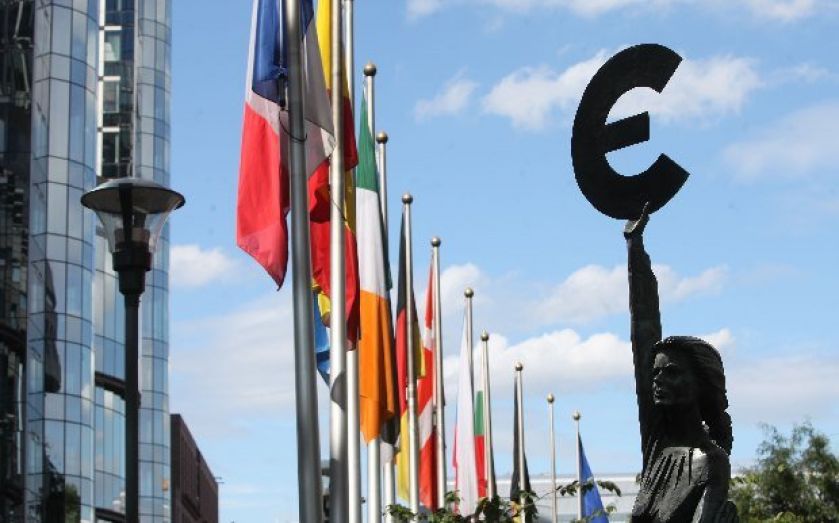Eurozone deflation: Euro area posts negative rate for the first time since 2009

There was yet more misery for the Eurozone this morning as it entered deflation for the first time since 2009.
Eurozone inflation dropped to -0.2 per cent compared with a year earlier, according to official data released by Eurostat. This was more than the -0.1 per cent economists had forecast for December.
It's largely due to crumbling oil prices – Brent crude fell below the $50 per barrel mark earlier today. Energy prices fell 6.2 per cent last month compared with December 2013.
Prices for food, tobacco and alcohol were largely unchanged, while services rose 1.2 per cent from a year earlier.
However core inflation, which removes less reliable measures such as food and energy prices, rose one percentage point to 0.8 per cent in December.
Howard Archer, chief UK and European economist at IHS Global Insight said:
While the ECB would normally look through any drops in the headline Eurozone inflation rate resulting from sharply falling oil prices, the bank will be seriously concerned that the move into deflation in December will lead to a further significant weakening in inflation expectations that then feeds through to result in renewed drops in already worryingly low core inflation.
Deflation can hurt economic growth if it encourages consumers to delay purchases on the belief they will be cheaper at a later date. This, in turn, limits the amount of money businesses make, which stops them making the investments needed to grow and curtail hiring.
Today's news will further fire-up pressure on the European Central bank to enact quantitative easing. This would involve the central bank buying government bonds to reinvigorate the Eurozone's ailing economy.